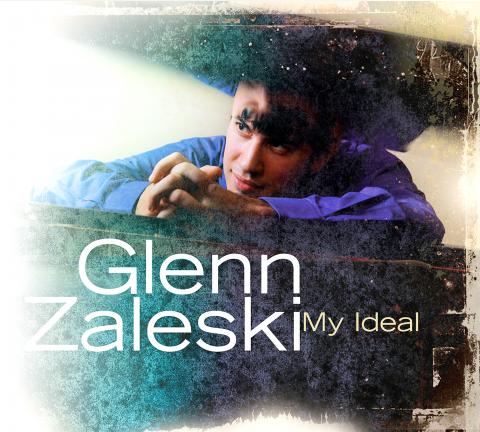Madness
Sleeping With Sirens
Epitaph

Anxiety about rock’s fading commercial prospects tends to focus on its bloated center, the overambitious bands like Imagine Dragons who aim for grand scale but have little substance to fill it in. But the frisson that could potentially keep rock broadly viable is often happening far from that center.
Throughout the 2000s, it’s been punk and its many offshoots that have, in fact, been rock’s great pop hope, from pop-punk to emo to electro-punk. Today, it may finally be posthardcore’s turn.
That idea certainly seems reasonable when listening to Madness, the fourth album from Sleeping With Sirens, a band that has slowly (over the past few years), contentedly shed its abrasions in search of something slicker and more accessible.

On this album, the band worked with John Feldmann, a producer who has a long history of polishing up rough gems. It starts with the frontman, Kellin Quinn, who has a sweet and piercing voice, forever plaintive, even when he’s shrieking. That means that even this album’s most aggressive moments, like the rousing We Like It Loud, are served with honey. Those moments are few and far between, though. Largely, this strong album — which in places recalls Paramore, another powerful band unafraid of the saccharine — blends tender and anguished in equal measure. Go Go Go, about a foolhardy relationship, bursts with zooming guitars and vocals processed until they gleam: “There’s plenty of time for us to finally get it right/Why don’t we crash and burn tonight?”
Sometimes the lyrics don’t match the energy of the music here, especially Jack Fowler’s guitar. They tend toward the blandly inspirational, with a handful of notable exceptions, like the haunting darkness on Better Off Dead, about pushing back suicidal thoughts, and on The Strays, a heartbreaking song about growing up unloved. “Hubcaps and ashtrays,” Quinn sings, “I was born/But wasn’t raised.”
— JON CARAMANICA, NY TIMES NEWS SERVICE

My Ideal
Glenn Zaleski
Sunnyside
A smart young jazz pianist with a mellow gleam in his tone, Glenn Zaleski has thus far made his impression just outside the center spotlight. He’s been a diligent sideman, but not with any artists whose bands typically serve as launching pads.
He finished strong, but not on top, in a pair of prestigious jazz piano competitions in 2011. The two albums that have featured him since were credited to Stranahan Zaleski Rosato, a graceful but leaderless trio with the drummer Colin Stranahan and the bassist Rick Rosato.
All of which makes My Ideal a proper debut for Zaleski, the moment in which he steps fully into the frame. Maybe it says something about him that the album feels so assuredly relaxed, so unconcerned about making a statement or a splash. It’s simply a well-rounded acoustic piano trio record, rooted in a modern language that runs from Bill Evans through Herbie Hancock and Kenny Barron.
Of course that isn’t as easy a target as Zaleski makes it seem. His trio on My Ideal features Dezron Douglas on bass and Craig Weinrib on drums, insightful players bound by a quality of assertive selflessness. The saxophonist Ravi Coltrane makes a cameo, and an implicit endorsement, on his own slippery arrangement of I’m Old-Fashioned.
The subtleties of touch that distinguish Zaleski as a pianist — along with his fluent but unhurried sense of phrase — find a natural showcase in the standard repertoire, as much on a boppish blues like Charlie Parker’s Cheryl as on a songbook chestnut like Nobody Else but Me. He’d do well to avoid a song as inexorably linked to Evans as Make Someone Happy, given his affinities of style; he makes a far better choice with Arietis, a modal charger by Freddie Hubbard, which gives him some breathing room.
And though Zaleski has his own book of compositions, the only originals on this album are the work of his peers: Rel, by the vibraphonist Peter Schlamb, and Waltz for MD, by Rosato. Both songs bring the trio a little too close to the aesthetic territory of Brad Mehldau. That’s not an issue unique to Zaleski, nor one that can’t be finessed. But if there is any unfinished business on this accomplished first outing, it involves a stronger claim to originality.
— NATE CHINEN, NY TIMES NEWS SERVICE
Afrodeezia
Marcus Miller
Blue Note
The suave assurance that Marcus Miller projects through an electric bass — with or without frets, in any style — may be both an abiding strength and an Achilles’ heel. His sound can be seductive and showy, in the off-putting way of an expensive magic trick. But it’s also vibrant and expressive, an unmistakable voice.
Every now and again in his long career, he has composed and arranged music that frames his playing beautifully, with a feel for just what makes it special.
Afrodeezia, his debut album on Blue Note Records, has a few moments like that, tucked into its glossy fabric of high-test smooth jazz and globe-trotting adult-contemporary pop.
Miller, 55, conceived of Afrodeezia after working as a UNESCO Artist for Peace and a spokesman for the organization’s Slave Route Project. Along with his working coterie of young aces, he included an array of guest musicians, some from Africa or the Caribbean and others, like the pianist Robert Glasper, from closer to home.
This broad framework suits Miller, who opens the album strong, with a kind of mentholated Afrobeat tune (Hylife) and a contemplative spin on Malian music (B’s River). So it’s a mystery why he felt this was the time for his cover of the Temptations’ Papa Was a Rollin’ Stone, with its melody thumb-slapped on bass, or a treacly original ballad, Xtraordinary, with lyrics that amount to little more than the title.
Everything clicks on a mournfully yearning theme, I Still Believe I Hear, featuring the cellist Ben Hong, and Son of Macbeth, an unabashed solo showcase convincingly framed by bleating horns, steel drums and a gnarly electric guitar. And with Water Dancer, Miller features a smart cameo by the trumpeter Ambrose Akinmusire.
The sociopolitical aspirations on Afrodeezia go largely unspoken until the closing track, when they assume a blunt-force clarity, thanks to the rap regent Chuck D. People fed up/In the cross hairs,” he rumbles. “Be aware/But both sides scared.”
Miller titled the track I Can’t Breathe, for the protest slogan, and enlisted a guest producer, Mocean Worker. Miller deserves some credit for both things, and for his bass clarinet work on the tune, which doesn’t dazzle but establishes a human touch.
— NATE CHINEN, NY TIMES NEWS SERVICE

June 9 to June 15 A photo of two men riding trendy high-wheel Penny-Farthing bicycles past a Qing Dynasty gate aptly captures the essence of Taipei in 1897 — a newly colonized city on the cusp of great change. The Japanese began making significant modifications to the cityscape in 1899, tearing down Qing-era structures, widening boulevards and installing Western-style infrastructure and buildings. The photographer, Minosuke Imamura, only spent a year in Taiwan as a cartographer for the governor-general’s office, but he left behind a treasure trove of 130 images showing life at the onset of Japanese rule, spanning July 1897 to

In an interview posted online by United Daily News (UDN) on May 26, current Chinese Nationalist Party (KMT) Chairman Eric Chu (朱立倫) was asked about Taichung Mayor Lu Shiow-yen (盧秀燕) replacing him as party chair. Though not yet officially running, by the customs of Taiwan politics, Lu has been signalling she is both running for party chair and to be the party’s 2028 presidential candidate. She told an international media outlet that she was considering a run. She also gave a speech in Keelung on national priorities and foreign affairs. For details, see the May 23 edition of this column,

The Taiwan People’s Party (TPP) on May 18 held a rally in Taichung to mark the anniversary of President William Lai’s (賴清德) inauguration on May 20. The title of the rally could be loosely translated to “May 18 recall fraudulent goods” (518退貨ㄌㄨㄚˋ!). Unlike in English, where the terms are the same, “recall” (退貨) in this context refers to product recalls due to damaged, defective or fraudulent merchandise, not the political recalls (罷免) currently dominating the headlines. I attended the rally to determine if the impression was correct that the TPP under party Chairman Huang Kuo-Chang (黃國昌) had little of a

At Computex 2025, Nvidia CEO Jensen Huang (黃仁勳) urged the government to subsidize AI. “All schools in Taiwan must integrate AI into their curricula,” he declared. A few months earlier, he said, “If I were a student today, I’d immediately start using tools like ChatGPT, Gemini Pro and Grok to learn, write and accelerate my thinking.” Huang sees the AI-bullet train leaving the station. And as one of its drivers, he’s worried about youth not getting on board — bad for their careers, and bad for his workforce. As a semiconductor supply-chain powerhouse and AI hub wannabe, Taiwan is seeing